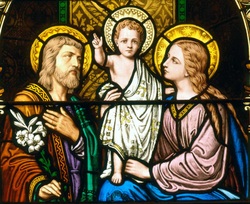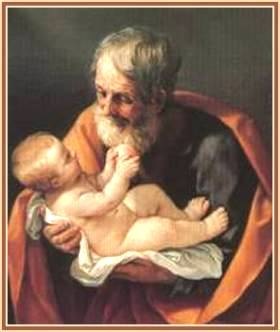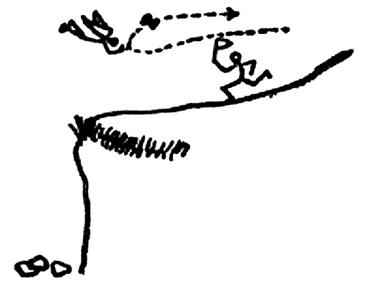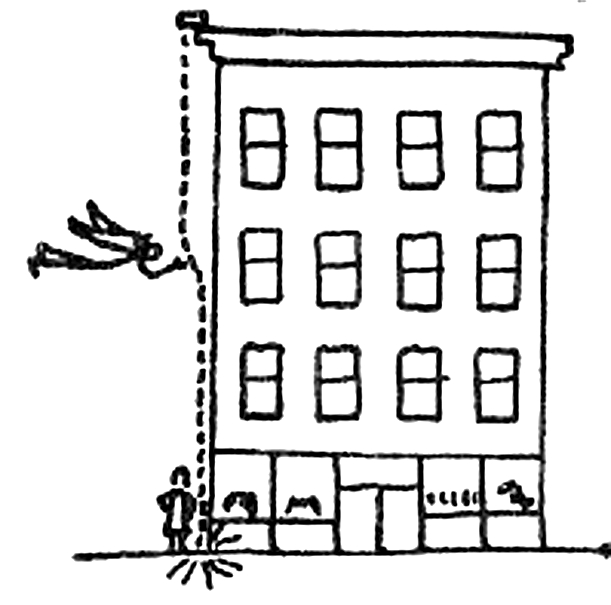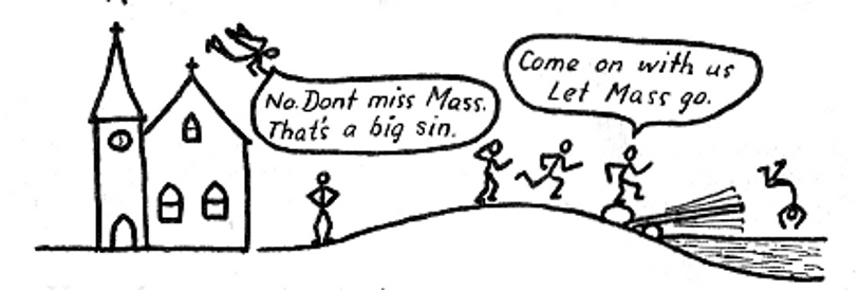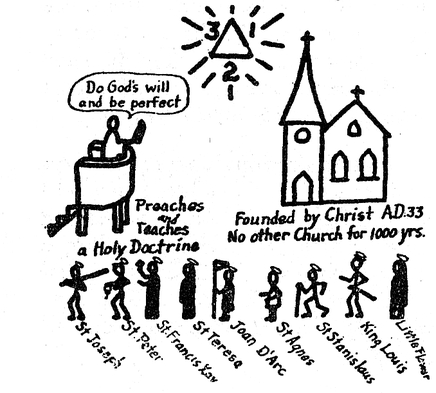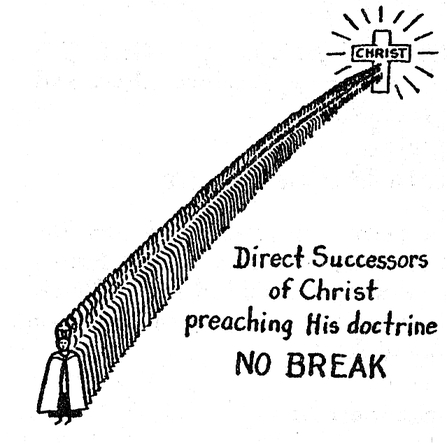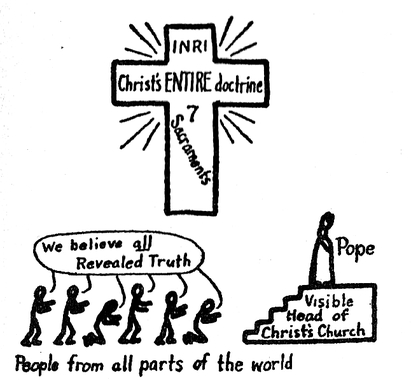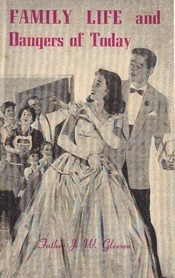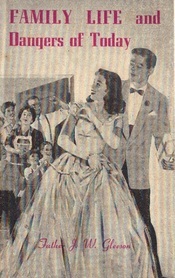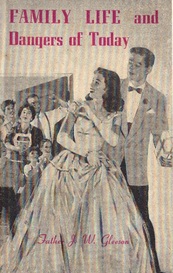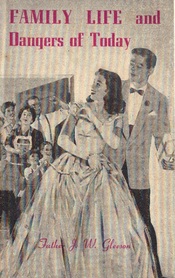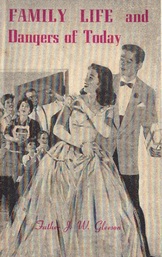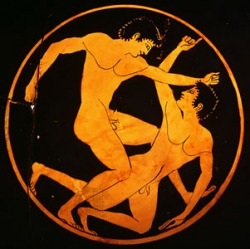
Whether there can be virtue in games?
Objection 1. Seems not, for St Ambrose says (De Office. 1 23) "Our Lord said: 'Woe to you who laugh, for you shall weep.' Wherefore I consider that all, and not only excessive, games should be avoided." Now something virtuous should not be avoided, therefore games are not virtuous.
Objection 2. "Virtue is that which God forms in us, without us," and Chrysostom says [Hom. vi in Matth.]: "It is not God, but the devil, that is the author of fun. Listen to what happened to those who played: 'The people sat down to eat and drink, and they rose up to play.'" Therefore there can be no virtue about games.
Objection 3. Aristotle says (Ethic. x, 6) that "playful actions are not directed to something else." (the only end is the fun itself. Ed.) But it is a necessary for virtue that the person in choosing should "direct his action to something else," as the Philosopher states (Ethic. ii, 4). Therefore there can be no virtue about games.
BUT
St. Augustine says (Music. ii, 15): "I pray thee, spare thyself at times: for it becomes a wise man sometimes to relax the high pressure of his attention to work." Now this relaxation of the mind from work consists in playful words or deeds. Therefore it becomes a wise and virtuous man to have recourse to such things at times. Moreover Aristotle [Ethic. ii, 7; iv, 8] assigns to games the virtue of eutrapelia, which we may call "pleasantness."
NOW
Just as we need rest for the body, as we can not always be at work as bodies have limits, likewise our souls have limits and need rest. When our souls work they also tire our bodies, because the mind needs the body to process thoughts by using the imagination etc. The sensible things are easier for our mind because they come naturally, but when we think of things beyond them, like contemplation, the weariness is greater and wears us out more, body and soul.
A tired body is relieved by resting, the soul's rest is pleasure. So the remedy for weariness of the soul is some application of pleasure by releasing the tension of ones studying. Thus it is related of St. John the Evangelist, that when some people were scandalized on finding him playing together with his disciples, he is said to have told one of them who carried a bow to shoot an arrow. When they had shoot an arrow several times, he asked him whether he could do it indefinitely, the man answered that if he continued doing it, the bow would break. From this St. John drew the inference that likewise a man's mind would break if its tension were never relaxed.
Aristotle says (Ethic. iv, 8) that "in the intercourse of this life there is a kind of rest that is associated with games": and consequently it is sometimes necessary to make use of such things. But caution must be taken in three ways:
- The pleasure sought must not be indecent or cause injury in word or deed. No discourteous, insolent or scandalous jokes.
- One must not lose ones balance of mind, as St Ambrose warns, "We should beware lest, when we seek relaxation of mind, we destroy all that harmony which is the concord of good works", just as we do not allow children to enjoy absolute freedom in their games, but only that which is consistent with good behaviour, so our very fun should reflect something of an upright mind.
- We must be careful to conform ourselves to persons, time, and place, and take due account of other circumstances, so that our fun "befit the hour and the man," as Tully says (De Offic. I, 29).
Reply to objection 1
As we have just said fun should be suited to times and persons. Sacred doctrine is concerned with things of great importance, but St Ambrose does not altogether exclude fun from human speech, but from sacred doctrine, hence he begins the above quote by saying: "Although jokes are at times fitting and pleasant, nevertheless they are incompatible with the ecclesiastical rule; since how can we have recourse to things which are not to be found in Holy Writ?"
Reply to objection 2
This saying of St. Chrysostom refers to the inordinate use of fun, especially by those who make the pleasure of games their end; of whom it is written (Wis. 15:12): "They have accounted our life a pastime." Against these Tully says (De Offic. i, 29): "We are so begotten by nature that we appear to be made not for play and fun, but rather for hardships, and for occupations of greater gravity and moment."
Reply to objection 3
Playful actions themselves considered in their various kinds are not directed to an end: but the pleasure derived from such actions is directed to the recreation and rest of the soul, and if this be done with moderation, it is lawful to make use of fun. Hence Tully says (De Offic. i, 29): "It is indeed lawful to make use of play and fun, but in the same way as we have recourse to sleep and other kinds of rest, then only when we have done our duty by grave and serious matters."
[Ed. So from what St Thomas says, it is more important for those who engage their minds in the higher things to take rest and pleasure from games. So, do not be scandalized if you see Monks, Priests, Brothers, or Sisters out there playing games or kicking a ball for the fun of it. Indeed it helps to give virtuous pleasure (rest) to their minds, enabling them to attain greater works of contemplation, from their rested minds.]
